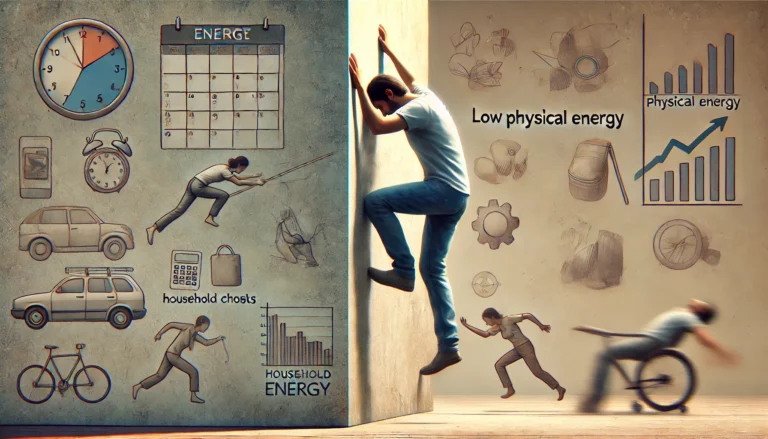7 Things You Should Definitely Stop Doing When You Are A Senior
As we age, paying attention to our health becomes even more critical. One common trap seniors fall into is ignoring symptoms or delaying check-ups, thinking ailments are just a normal part of aging. They’re not. Regular medical check-ups are crucial. These visits help catch issues early and manage existing conditions effectively. Your doctor can guide you on what screenings and immunizations are necessary based on your health history and age. I have never been to a doctor since 1976, but I do make sure my blood pressure, cholesterol and sugar levels are good. Fortunately because I am what I eat I do not need to have any tablets or medication. Staying mobile and active plays a huge role in maintaining my overall well-being. Sedentary lifestyles can lead to a host of problems like muscle weakness, joint stiffness, and increased risk of falls. Simple exercises like walking or stretching can make a big difference. Always consult your physician before starting any new physical activity regime, especially if you have pre-existing conditions.
Be Proactive About Your Health
On the mental health front, being proactive is key. Many seniors struggle alone with feelings of anxiety or depression, thinking it’s just part of getting older. It’s not. Mental health is just as important as physical health. Talk to your doctor if you’re experiencing mood swings or prolonged sadness. Sometimes, a slight adjustment in lifestyle or medication can drastically improve your quality of life.
Ignoring health isn’t just about physical issues either. Ensure you’re keeping up with dental, vision, and hearing check-ups too. These aspects of health can dramatically affect your quality of life and independence. Dental problems can lead to nutrition issues, and poor vision or hearing can contribute to social isolation. Healthy habits, regular screenings, and staying active are foundational to aging gracefully.
7 Things You Should Stop Doing When You Are A Senior.
1. Stop Skipping Out on Sleep
Quality sleep isn’t just a luxury; it’s a necessity, especially for seniors. Our bodies repair and regenerate during sleep, and skimping on it can lead to a range of health issues. Common ailments like memory problems, mood swings, or even higher risks of falls are often linked to poor sleep patterns. Aim for 7-9 hours of sleep each night to maintain optimal health.
I personally started to go to bed when I was sleepy and then slept, and woke up without an alarm clock. Some nights I sleep for 12 hours and some nights for seven. I personally make sure I get a siesta in the the afternoon if I am tired. All my activities are driven by my tiredness.
Sleep issues in older adults, like insomnia, sleep apnea, and restless leg syndrome, are more frequent than one might think. These problems can stem from various factors including medications, underlying health conditions, or lifestyle habits. If you’re experiencing any sleep disturbances, it’s wise to talk to your doctor. They can help identify the root cause and suggest effective treatments or lifestyle changes.
Adopting good sleep hygiene can significantly enhance your sleep quality. Keeping a regular sleep schedule, creating a relaxing bedtime routine, and ensuring your sleep environment is conducive to rest are practical steps. This might mean investing in a good mattress, using blackout curtains, or even reducing noise levels in your bedroom.
Disruption of Melatonin Production.
Blue light interferes with the production of melatonin, the hormone responsible for regulating sleep-wake cycles. Melatonin production increases in the evening as it gets dark, helping you feel sleepy. Exposure to blue light in the evening delays melatonin production, making it harder to fall asleep and reducing sleep quality.
Circadian Rhythm Disruption
The body’s internal clock, or circadian rhythm, is highly sensitive to light, especially blue light. This rhythm controls various physiological processes, including the sleep-wake cycle. Blue light exposure at night can confuse the circadian rhythm, making the body think it’s still daytime, thus delaying sleep onset and reducing overall sleep duration.
Sometimes, despite your best efforts, you might still struggle with sleep. If sleep problems persist, seeking medical advice is crucial. There might be underlying health issues that need addressing, or perhaps a need for a more tailored approach to your sleep habits. Remember, your well-being is worth the attention and care.
2. Stop Holding On to Stress and Negativity
Holding on to stress and negativity can wreak havoc on both physical and mental health. Chronic stress can lead to serious health problems like high blood pressure, heart disease, diabetes, and a weakened immune system. Learning to manage stress is essential for maintaining a healthy lifestyle as you age.
Practicing mindfulness and relaxation techniques can be incredibly effective. Mindfulness meditation, deep-breathing exercises, and progressive muscle relaxation can help reduce stress levels. These practices can foster a more positive outlook and improve your overall quality of life. Even just a few minutes a day can make a noticeable difference.

Social connections play a crucial role in managing stress. Spending time with friends and family, participating in community activities, or joining clubs can provide emotional support and reduce feelings of isolation. Engaging with others who share similar interests can be both comforting and uplifting.
Sometimes, professional help might be necessary. Therapists and counselors can provide strategies and tools to manage stress and negative emotions. They offer a safe space to explore your feelings and work through any challenges you might be facing. Don’t hesitate to seek professional advice if you feel overwhelmed.
3. Stop Underestimating Nutrition
Proper nutrition is a cornerstone of good health, especially as we age. Our nutritional needs change over time, and what worked for us in the past may not be enough now. Ensuring that you’re getting all the essential nutrients your body needs can prevent a host of health problems down the line.
Certain nutrients are particularly vital for seniors. Calcium and vitamin D are crucial for bone health, protein helps maintain muscle mass, and fiber supports digestive health. Make sure your diet is rich in fruits, vegetables, lean proteins, and whole grains to cover these bases.
It’s easy to fall into dietary pitfalls, like relying too heavily on processed foods or skipping meals. These habits can lead to nutritional deficiencies that impact your energy levels, immune function, and overall health. Planning balanced, wholesome meals and maybe even consulting with a nutritionist can provide a clear, personalized dietary plan.
Hydration is another key component often overlooked. As we age, our sense of thirst may diminish, but staying hydrated is just as important as ever. Dehydration can lead to urinary and kidney problems, confusion, and even falls. Aim to drink plenty of water throughout the day and include hydrating foods like fruits and vegetables in your diet.
If you’re unsure about your nutritional needs, consider meeting with a nutritionist or dietitian. These professionals can offer tailored advice and help create a meal plan that supports your health goals. Proper nutrition isn’t just about eating right; it’s about ensuring your body gets exactly what it needs to thrive.
4. Stop Neglecting Physical Activity
Keeping physically active is essential for maintaining good health as you age. Exercising regularly can help prevent many common age-related health issues such as high blood pressure, diabetes, and cardiovascular diseases. It also keeps your muscles strong and joints flexible, reducing the risk of falls and injuries.
You don’t need to engage in high-intensity workouts to stay fit. Simple activities like walking, gardening, or even gentle yoga can keep you active. These low-impact exercises are easier on your joints and still provide significant health benefits. The key is consistency. Aim to include some form of physical activity in your daily routine. Even small amounts of movement can add up to substantial health benefits over time.
Remember to listen to your body. Start slowly and gradually increase the intensity and duration of your workouts. It’s always a good idea to consult your physician before starting any new exercise program, especially if you have pre-existing health conditions. They can offer guidance on what types of activities are safest and most effective for you.
Incorporating physical activity into your daily routine doesn’t have to be a chore. Find activities that you enjoy. Whether it’s dancing, swimming, or playing with your grandchildren, the more you enjoy the activity, the more likely you are to stick with it. Making exercise a social activity can also add an element of fun and accountability.
Exercise is not just good for your body; it’s also beneficial for your mind. Physical activity can improve mood, reduce stress levels, and boost cognitive function. Staying active can lead to a more fulfilled, healthier life, so find what works for you and make it a regular part of your routine.
5. Stop Complaining
Constant complaining can negatively impact mental and physical health. Focusing on the negatives eats away at your mental well-being and can strain relationships with friends and family. Cultivating a positive outlook can make a world of difference.

Adopting a more optimistic mindset often starts with self-awareness. When you catch yourself complaining, try to shift your focus. Instead of dwelling on what’s wrong, think about what you can be grateful for. This simple switch in perspective can brighten your mood and outlook.
Engaging in activities that make you happy can also help reduce the tendency to complain. Whether it’s pursuing a hobby, spending time in nature, or volunteering, finding joy in small things can lift your spirits.
Surround yourself with positive influences. Spend time with people who uplift and inspire you. This can create a more positive environment and reduce the urge to complain. Sharing good news and celebrating small victories with loved ones can enhance your sense of joy and contentment.
Lastly, if complaints often stem from unresolved issues, addressing these problems directly might be necessary. Whether it’s talking to a trusted friend, seeking counseling, or finding ways to make practical changes in your life, tackling problems head-on can reduce the burden of chronic negativity.
6. Stop Isolating Yourself
Social isolation can have severe effects on mental and physical health. Loneliness is linked to higher risks of anxiety, depression, and even chronic diseases. It’s crucial to stay connected to others and maintain social interactions.
Participating in community activities can provide a sense of belonging and community. Whether it’s joining a local club, attending church groups, or volunteering, engaging with others can significantly improve mental wellbeing. These activities provide opportunities to meet new people and build supportive relationships.
Maintaining regular contact with family and friends is also vital. A simple phone call, video chat, or visit can go a long way to combat feelings of loneliness. Sharing experiences, asking for advice, or just catching up can be incredibly uplifting.
Sometimes, professional support is needed. Therapists and counselors can provide strategies to manage feelings of isolation and help build a network of support. They offer valuable resources and can connect you with local groups or services designed to support seniors. Social connections are a critical component of emotional and mental health.
Telehealth services have transformed healthcare, making it easier to consult with healthcare providers without leaving your home. This is especially useful for those with limited mobility or those who live far from medical facilities. Most health professionals now offer virtual consultations, which can save time and provide quick access to medical advice.
Staying safe online is also crucial. Awareness of online scams and setting up proper security measures can keep your personal information protected. Simple practices like using strong passwords, being cautious of unsolicited emails or messages, and setting up two-factor authentication add extra layers of security.
The initial learning curve might be steep, but the benefits far outweigh the initial effort. Start with small steps, like video chatting with family, exploring social media, or reading online news. Embracing technology empowers you to stay informed, connected, and engaged in a rapidly changing world.
If mobility is an issue, consider virtual socializing options. Tools like video calls, social media, or even online groups can keep you connected with loved ones and meet new people with similar interests. Technology might seem intimidating, but many community centers offer classes to help seniors become more tech-savvy.
7. Stop Avoiding Technology
Embracing technology can significantly improve your quality of life. While it might feel a bit overwhelming initially, getting comfortable with digital tools can open up new worlds of convenience and connection.
Learning new skills and hobbies online has become more accessible than ever. From virtual classes on cooking, painting, or even language learning, the internet offers a plethora of opportunities to keep your mind sharp and engaged. Many educational platforms provide courses specifically designed for seniors, making it easier to learn at your own pace.
Staying safe online is also crucial. Awareness of online scams and setting up proper security measures can keep your personal information protected. Simple practices like using strong passwords, being cautious of unsolicited emails or messages, and setting up two-factor authentication add extra layers of security.
The initial learning curve might be steep, but the benefits far outweigh the initial effort. Start with small steps, like video chatting with family, exploring social media, or reading online news. Embracing technology empowers you to stay informed, connected, and engaged in a rapidly changing world.
Conclusion to 7 things You Should Definitely Stop Doing When you Are a Senior
As we journey through the later stages of life, it’s crucial to embrace positive habits and let go of those that no longer serve us. By stopping behaviors that drain our energy and diminish our well-being, we open ourselves up to a more fulfilling and vibrant life. Whether it’s letting go of unnecessary complaints, resisting the urge to isolate, or ceasing to dwell on past regrets, making these changes can significantly enhance our quality of life. Embracing new experiences, fostering meaningful connections, and prioritizing our health and happiness allow us to live our golden years with grace and joy. Remember, the best years are still ahead when we choose to live with intention and positivity.







Hi!
I’m 67 and I definitely agree with you on these things to stop doing. Isolating can be very damaging and bring about an early death. I like being among people in my church. My wife and I are also involved in the county symphonic chorus, and I am an actor in community theater. Since we both work at home, these things get us out of the house.
I work on a computer all day, so I’m pretty savvy. That doesn’t mean that my grandkids still don’t know more than I do.
I try to be active and go to a gym a few times each week. I also try to eat better and have good nutrition. Usually though, the harder I work at this, a chocolate bar inevitably looks at me and snickers.
Your article is great advice for any senior!
– Scott
Thanks, Scott. One thing I didn’t fully address is having fun and enjoying life. I am 70 and have lost two pensions (a story for another day), but I still love my life. I am a digital nomadess and combine writing and, creating, and flipping websites with traveling. I am just about to embark on seven years in South America
Catherine,
I really appreciate the great article on things to avoid as we get older. I’m not quite at that golden age yet, but I like to try to stay informed for the future of myself, or even loved ones that are a little older than I.
Personally, #5 and #6 really hit home for me. It’s so easy to complain about anything and everything. To know what that does for your mental and physical health may be a motivation to redirect my mindset when I fall into a rut of complaining.
It can also be so easy for me to get really busy with life and such, and overlook reaching out to friends and family. You provide great insight as to how to stay involved with others, and the importance in doing so for your overall health.
Thank you, Mike, for your thoughtful response! I’m glad the article resonated with you, even if you’re not quite at that stage yet. It’s wonderful that you’re being proactive about staying informed for both yourself and your loved ones. Recognizing the impact of complaining and staying connected with others are both crucial for maintaining mental and physical health. It’s great to hear that you’re motivated to shift your mindset and prioritize your relationships. Keep up the positive approach
Thanks for sharing this! I completely agree—being proactive about health, both mental and physical, is key as we age. It’s so important to keep up with check-ups, not just for the body but also for dental, vision, and hearing since they can significantly impact our daily lives. I love the focus on sleep, staying active, and maintaining a positive mindset. It’s a great reminder that small, mindful changes can make a huge difference in our quality of life. The advice on embracing technology is spot on too—there’s so much out there that can help us stay connected and engaged!
Thank you, Randi; I love it when my readers share my mindset; it feels like I am talking to friends with the same ideas and goals. In this case, to age vibrantly, healthily, and ungracefully! Small changes can make a bif difference, even though I am 70 I will never mentally age, or at least that is the plan
This article really resonated with me as it highlights important habits that seniors should reconsider. One question I have is about the balance between staying active and knowing when to slow down. How do you recommend seniors differentiate between pushing their limits in a healthy way versus overextending themselves? In my experience, it’s crucial to stay mindful of our physical changes while still embracing life fully. I’d love to hear more about maintaining this balance as we age.
That’s a great question, and it’s something I’ve thought about a lot. For me, the key to finding that balance between staying active and knowing when to slow down is all about listening to my body. It’s important to stay active to maintain strength and mobility, but I’ve learned to pay close attention to signs of fatigue or discomfort. When I feel those signals, I take it as a cue to rest or adjust my activities. It’s not about pushing through at all costs but rather finding a sustainable rhythm that allows me to embrace life fully while respecting my physical limits. Staying mindful of how my body feels each day helps me enjoy an active lifestyle without overextending myself.
Catherine, your article is truly inspiring! As someone who’s not yet at retirement age but deeply interested in adopting a digital nomad lifestyle, your insights on maintaining health as we age resonate with me. I particularly appreciate your emphasis on embracing technology, which is something I know will be crucial as I pursue a more mobile lifestyle, especially with a child in tow.
Your point about staying physically active caught my attention, and I’d like to add that I believe strength training is perhaps the most important and underrated activity for seniors—or anyone, really. It’s not just about maintaining muscle mass, but also about improving overall health, balance, and even mental well-being. If you’re interested, I recommend looking up Starting Strength by Mark Rippetoe. He’s a big believer in the benefits of strength training for older adults and has extensive experience working with this group.
Also, as someone considering the digital nomad lifestyle with a child, what advice would you give on integrating technology into this lifestyle? Specifically, what kinds of tech tools or platforms would you recommend for someone balancing work, travel, and parenting?
Thank you so much for your recommendation. I will certainly check it out. I do Pilates, but I think I need to develop more muscle.You can have a look at my life as a digital nomad here http://www.digitalnomadess.com
This post is incredibly informative and offers valuable insights for seniors to improve their overall well-being. I particularly appreciate the emphasis on the importance of communication, nutrition, physical activity, and social connections in maintaining good health. The tips on managing stress, staying positive, and embracing technology are also highly relevant.
I’d love to hear more about how others have implemented these suggestions in their daily lives. What specific strategies have worked best for you? Have you noticed any significant improvements in your physical or mental health since making these changes? Let’s continue the conversation and share our experiences!
Thank you so much for your thoughtful comment! I’m thrilled that you found the post informative and valuable. Communication, nutrition, physical activity, and social connections are indeed pillars of well-being, especially as we age. It’s amazing how small adjustments in these areas can lead to big improvements in quality of life.
As for personal experiences, I’ve noticed that many people see great results by starting small—whether it’s a daily walk, trying out new healthy recipes, or even setting up regular calls with friends or family to stay socially connected. Stress management, too, can be a game changer, and embracing technology can open doors to everything from mental stimulation to keeping in touch with loved ones more easily.
Making massive changes can be disorientating and difficult to maintain
Thank you so much Catherine for taking your time to inspire people about healthy living, this is quite informative. Great that you are sharing your own life experiences, professionalism and wisdom from experts, you are not telling people what to do but you are walking the walk. You are also encouraging people to have regular check ups, to ensure their health is good by eating healthy foods to avoid things like diabetes and high blood pressure, engaging in regular exercises, walks, travel, communicating with others etc. To those who are sufferers of diabetes you provided recipe for low GI diet to avoid further damage. You have put everything together in a great way, great content. Just one thing I kinda of noticed, the link in your about me page Digital Nomad did not open for me, but every other thing is great.
Thank you for your lovely comment Eilen and thank you for pointing out that the link to digitalnomad.com was not working I am just changing hosting and then it should work. I have set out not to preach in this blog and if my experience in life someone helps that is great. If not everyone has their own path